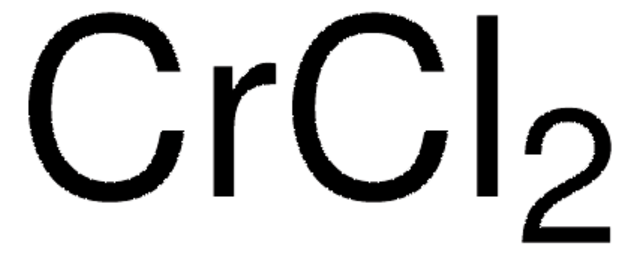16017
Phénol
puriss., meets analytical specification of Ph. Eur., BP, USP, 99.5-100.5% (GC)
Synonyme(s) :
Hydroxybenzène
About This Item
Produits recommandés
Densité de vapeur
3.24 (vs air)
Niveau de qualité
Pression de vapeur
0.09 psi ( 55 °C)
0.36 mmHg ( 20 °C)
Qualité
puriss.
meets analytical specification of Ph. Eur., BP, USP
Essai
99.5-100.5% (GC)
Forme
solid
Température d'inflammation spontanée
1319 °F
Limite d'explosivité
8.6 %
Impuretés
acidic reac. Impurities, in accordance
organic volatile impurities, in accordance (GC)
≤0.05% non-volatile matter
≤0.3% water (Karl Fischer)
pb
182 °C (lit.)
Pf
40-42 °C (lit.)
Température de transition
solidification point ≥40 °C
Densité
1.071 g/mL at 25 °C (lit.)
Adéquation
in accordance for appearance of solution
Chaîne SMILES
Oc1ccccc1
InChI
1S/C6H6O/c7-6-4-2-1-3-5-6/h1-5,7H
Clé InChI
ISWSIDIOOBJBQZ-UHFFFAOYSA-N
Informations sur le gène
human ... GABRA1(2554)
Vous recherchez des produits similaires ? Visite Guide de comparaison des produits
Description générale
Application
Produit(s) apparenté(s)
Mention d'avertissement
Danger
Mentions de danger
Classification des risques
Acute Tox. 3 Dermal - Acute Tox. 3 Inhalation - Acute Tox. 3 Oral - Aquatic Chronic 2 - Eye Dam. 1 - Muta. 2 - Skin Corr. 1B - STOT RE 2
Organes cibles
Nervous system,Kidney,Liver,Skin
Code de la classe de stockage
6.1A - Combustible acute toxic Cat. 1 and 2 / very toxic hazardous materials
Classe de danger pour l'eau (WGK)
WGK 2
Point d'éclair (°F)
177.8 °F - closed cup
Point d'éclair (°C)
81 °C - closed cup
Équipement de protection individuelle
Eyeshields, Faceshields, Gloves, type P2 (EN 143) respirator cartridges, type P3 (EN 143) respirator cartridges
Faites votre choix parmi les versions les plus récentes :
Déjà en possession de ce produit ?
Retrouvez la documentation relative aux produits que vous avez récemment achetés dans la Bibliothèque de documents.
Les clients ont également consulté
Notre équipe de scientifiques dispose d'une expérience dans tous les secteurs de la recherche, notamment en sciences de la vie, science des matériaux, synthèse chimique, chromatographie, analyse et dans de nombreux autres domaines..
Contacter notre Service technique




